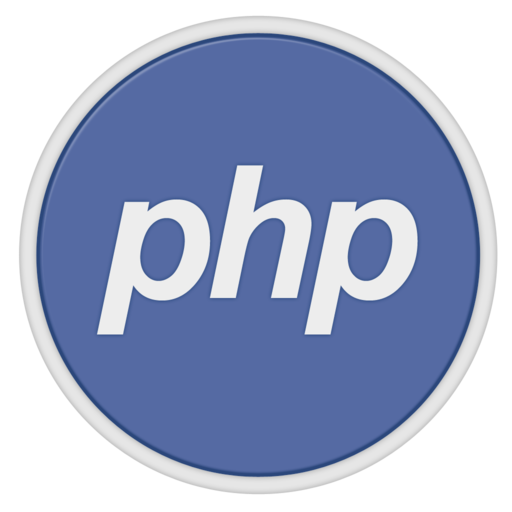Home >Backend Development >PHP Tutorial >Detailed introduction to files and directories
Detailed introduction to files and directories
- 巴扎黑Original
- 2017-06-13 11:34:031533browse
Problem Overview: Windows Server 2008 administrators can assign NTFS permissions to user accounts or group accounts based on security requirements. Usually only the system administrator, the owner of the file or directory, or a user with full control permissions on the file or directory can change the permissions of an NTFS file or directory. When specifying standard permissions, you can set each permission to "Allow" or "Deny" to execute the permission. Solution steps: Taking Windows Server 2008 as an example, the standard permission setting steps for a directory are as follows: 1. Select "Start" -> "Computer", enter the disk and select the directory for which you want to set permissions. In this example, the Test directory on the C drive is used For example. 2. After selecting the C:\Test directory, right-click, select the "Properties" command in the pop-up shortcut menu, and then select the "Security" tab in the "Test Properties" dialog box. 3. Click the "Edit" button and click the "Add" button in the "Test Permissions" dialog box. 4. In the "Select User or Group" window, click the "Advanced" button, and then click the "Find Now" button. Then in the "Search results
1. 10 content recommendations for directory rights

## Introduction: Problem Overview: Windows Server 2008 administrators can assign NTFS permissions to user accounts or group accounts based on security requirements. Usually only the system administrator, the owner of the file or directory, or the owner of the file. Users with full control permissions on the directory can change the permissions on the NTFS file or directory. When specifying standard permissions, you can set it to "Allow" or "Deny" to execute the permission. Solution: Use Windows. Taking Server 2008 as an example, the standard permission setting steps for the directory are as follows: 1. ...
2. Detailed introduction to thinkPHP5.0 framework development specifications

Introduction: This article mainly introduces the thinkPHP5.0 framework development specifications and briefly analyzes various variables and constants of thinkPHP5.0 , files, directories, class libraries and other naming conventions and precautions. Friends in need can refer to
3. PHP Basic Tutorial Fifteen File and Directory Operations

Introduction: When we are developing, sometimes we need to upload and download pictures and files. For example, when registering an account, sometimes you need to upload a picture of your avatar. At this time, you need to use file processing, and there are many file styles, such as txt, word, excel, etc. The file transmission method is in PHP language or even other languages. The form of operating files in PHP is essentially to operate streams. There are two types of streams (byte stream, binary stream) in PHP, which are divided into input streams and output streams according to the output method. ##4. PHP implements the method of receiving binary streams and converting them into images
Introduction: This This article mainly introduces the method of receiving binary streams and converting them into images in PHP, and analyzes the related skills of PHP files, directories and graphics operations in the form of examples. Friends in need can refer to the following 
5. php implements hexadecimal conversion (binary, octal, hexadecimal) and mutual conversion implementation code
Introduction: This article mainly introduces the method of receiving binary streams and converting them into pictures in PHP. It analyzes the related skills of PHP files, directories and graphics operations in the form of examples. Friends in need can refer to the following
6. Java method examples of deleting files, directories and all files in the directory
Introduction: This article mainly introduces you to the method of using Java to delete files, directories and all files in the directory. The article gives detailed sample codes and annotations. Friends in need can refer to it. Let’s take a look below.
Introduction : PHP file operation method of obtaining files in a directory and calculating relative paths. PHP file operation method to obtain files in a directory and calculate relative paths. Get files in a directory 1. Get files in a directory, excluding subdirectories //Get all files and directories in a directory
8. PHP file operation: How to get files in a directory and calculate relative paths,
Introduction: PHP file operations: Get files in a directory and calculate relative paths path method,. PHP file operation method of obtaining files in a directory and calculating relative paths. Obtaining files in a directory 1. Obtaining files in a directory, excluding subdirectories // Obtaining all files and directories in a directory
9. PHP self-destruct program – a must-have good concubine for private life
Introduction: PHP self-destruct program – a must-have good concubine for private life?php/ / +------------------------------------------------ -----------------------// | Kill!!// | The program will clear all files and directories in this directory // | If database information is set, then Try to delete all database and table data (provided the permissions are sufficient!) // +------
[Related Q&A recommendations]:
The above is the detailed content of Detailed introduction to files and directories. For more information, please follow other related articles on the PHP Chinese website!

